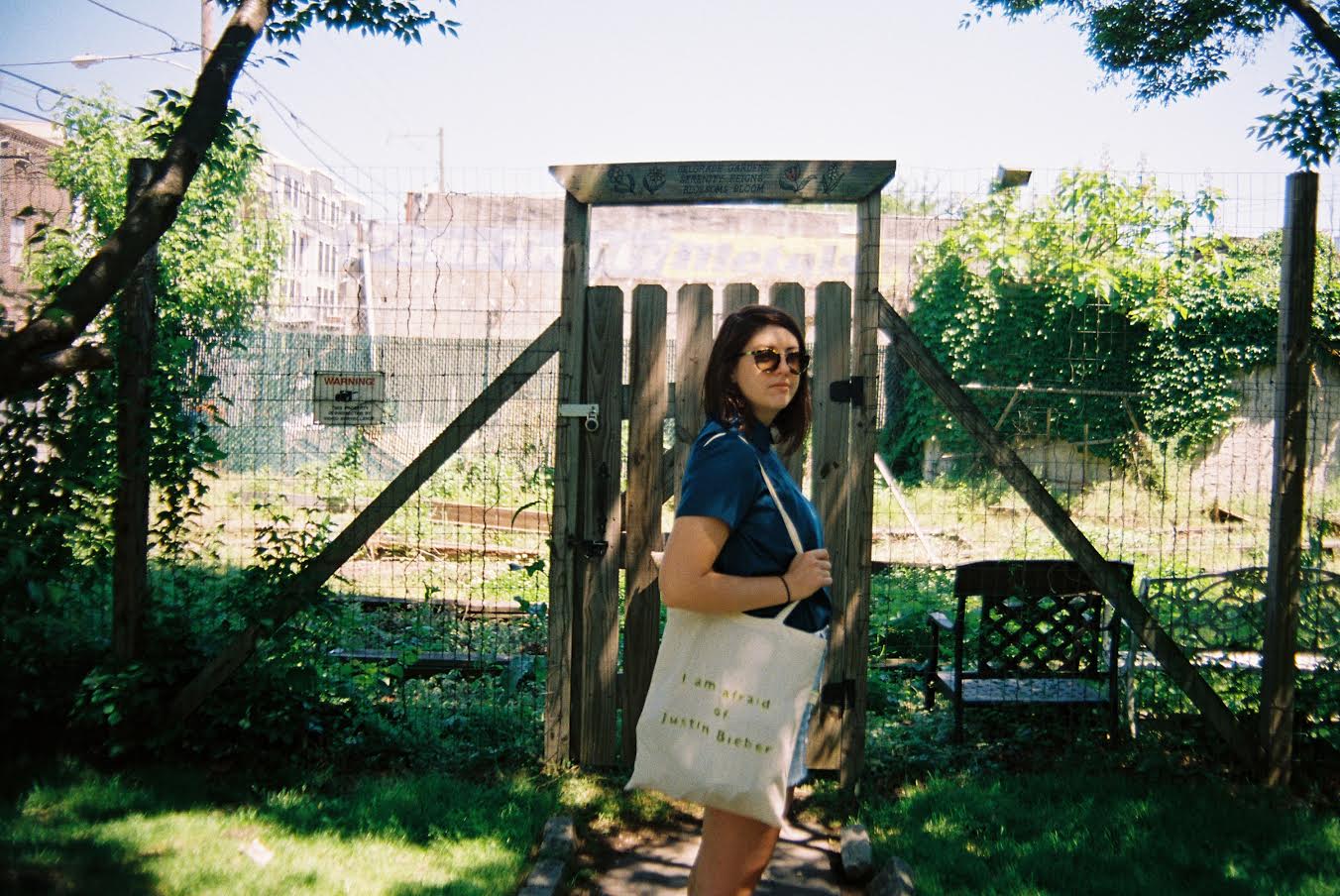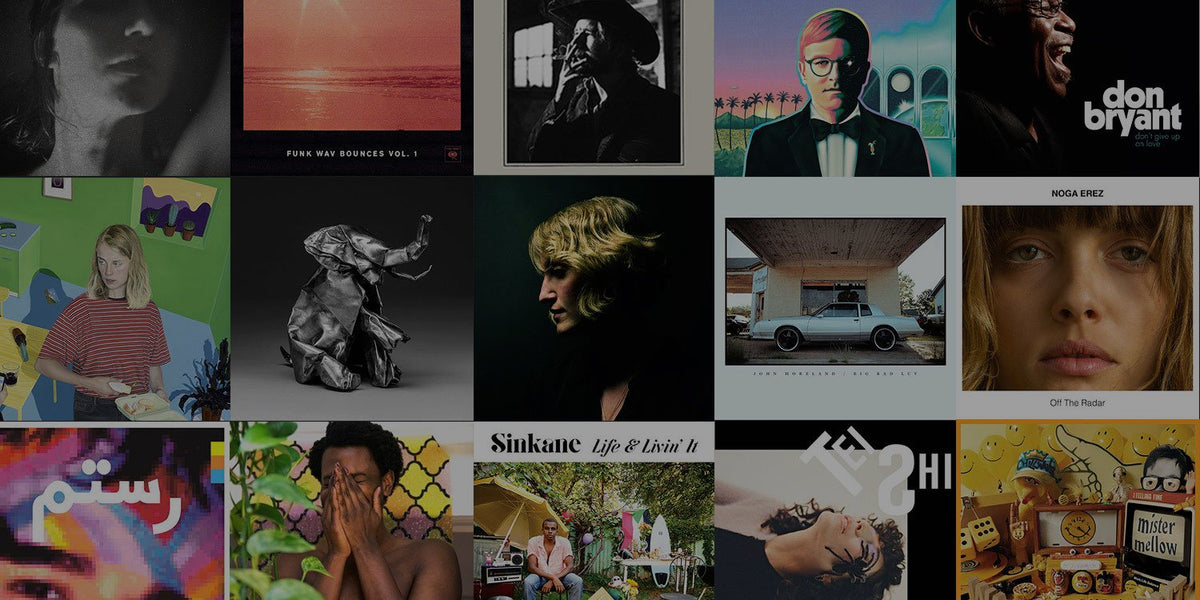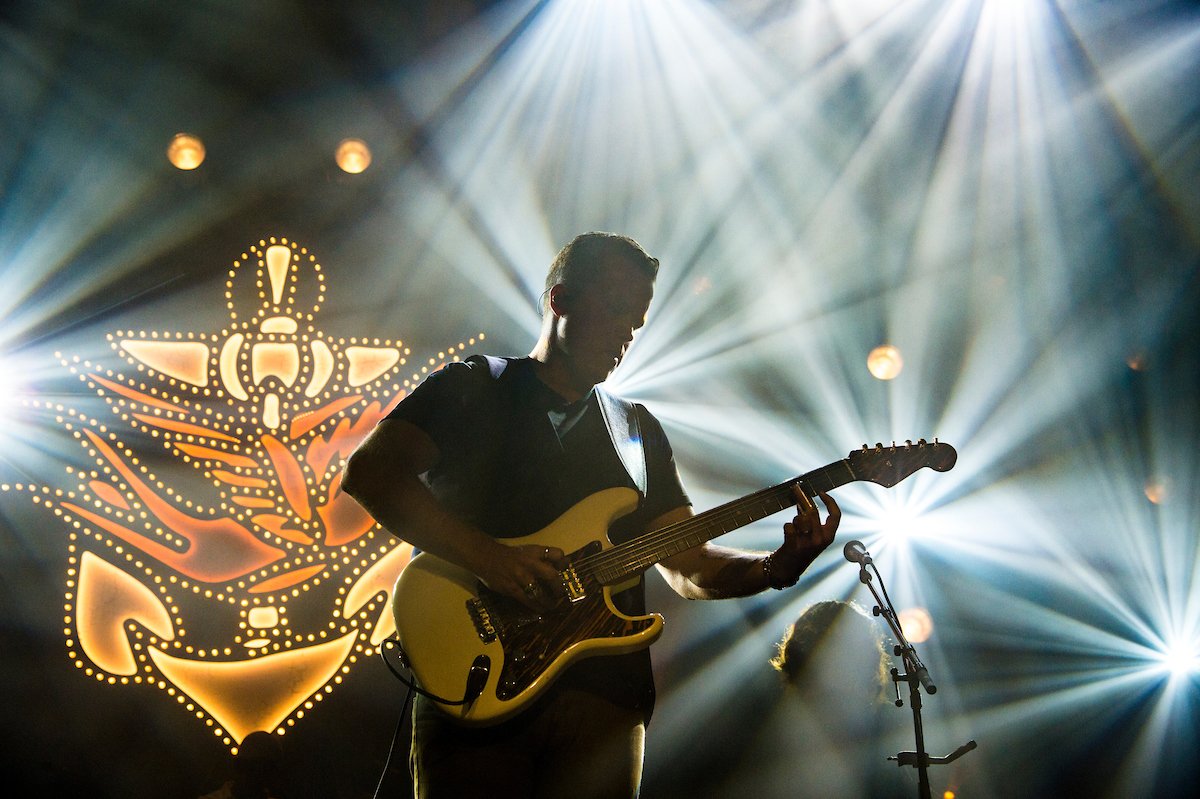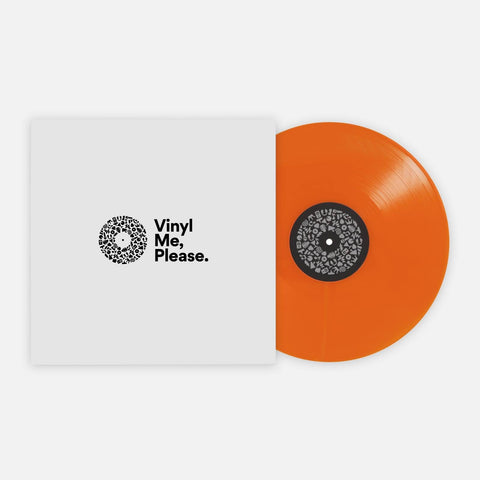Shamir’s 'Resolution'
We Go To Philly To Talk To The Singer-Songwriter About His New Album
Shamir's brand new album — and third in a year and a half — Resolution is out officially right now. You can buy our exclusive vinyl release of the album right here, and below, read an interview with Shamir about the album.
Shamir Bailey sees happiness as placemarks. The moments of joy may be fleeting, but they represent time worth celebrating in a world constantly in flux. “There are so many crazy things happening where if you do feel happy, you really have to cherish that moment now,” the 23-year-old musician says. “Anytime I felt positive I want to make it a big deal.”Today
None of it has particularly been easy. Despite a bout of bronchitis, Shamir seems happy. Sitting in the sun outside a Philadelphia coffee shop, the singer recounts the turbulence of the last year: a raw and emotive SoundCloud release, Hope, hospitalization due to a psychotic episode, a bipolar diagnosis, a ’90s DIY-inspired album, Revelations.
The road that took Shamir through the last year reads like a music industry fable. After a quick rise to fame courtesy of his 2015 disco-pop debut Ratchet, the then Las Vegas-based Shamir struggled to produce a follow-up that felt authentically him and also appeased his label, XL. By the time he self-released Hope in 2017, Shamir revealed he had been dropped by XL and considered quitting music. At 2017’s close, Revelations had been released and Shamir was working on yet another LP. He also felt secure in his mental health and was living in Philly.
When he returned home to Las Vegas over the holidays, inspiration took hold. Out of both boredom and of self-reverence for making it through the year, Shamir churned out another set of songs, which comprise Resolution, a limited edition of which you can purchase through Vinyl Me, Please. “I guess being the end of the year and being happy I survived it, and being around family, it put the whole year in perspective for me,” Shamir says. “So I just wrote out all these new songs. It felt like something that I couldn’t sit on.”
On Resolution, Shamir is liberated. From the brutally poignant opener “I Can’t Breathe” which details police misconduct, to the quiet reckoning on “Sanity,” it is Shamir’s strength as a guitar singer-songwriter put front-and-center.
Though he’s on the road through most of July, Shamir has his eyes set on another creative outlet: writing a book of essays. “I think the main underlying theme I'd like to write about right now is feeling out of place in the music industry because I have basically no close friends in the music industry,” he says. “I am an artist but I don't think I conduct myself like an artist.”
This is a part of Shamir’s charm. He’ll just as quickly divulge his afternoon plans — buy a lot of candles — or the size of his wardrobe — he can get by with washing clothes once every two to three months — as he will discuss the inner workings of his music. Shamir is a human with interests and hobbies. He also happens to sing and play guitar.
Yes, Shamir Bailey is happy: “I’m here, I’m healthy, I did it.”
VMP: What’s the story behind Resolution?
Shamir Bailey: I started working on another official album last fall, in October before Revelations came out. But after the first tour for Revelations, it was in December, so immediately I just went back home for the holidays. I call it Resolution because I wrote it before the new year came in and recorded it when I got back to Philly after the holidays. It feels like a chapter closer, really.
Those are two aspects you get from listening to the album: that the songs are urgent and they are a conclusion.
I think [with] Resolution people are like, “Oh, is it a trilogy?” And I'm like, no, not really. I'm not going to stop writing guitar music. It's not me experimenting. It’s a trilogy in a sense that I'm done just recording albums and throwing it at people. That’s what Hope was, that’s what Revelations was. It had a cycle but I finished it in two weeks.
Another thing I noticed was Hope and Resolution bookmark this intense period of your life.
So Hope is a before — then everything hit the fan. I had my episode, I went to the doctor, then I was forced to go back home. Revelation is me coping with that and being back home and also just being super bored because I was at home. And Resolution is me closing that chapter and looking like, wow, 2017 was a hard-ass year for me. And the fact that not only am I still alive but I just finished a tour with some of my favorite people: Resolution is me being happy.
And what about your other albums?
Before I started doing all of this, I just had one record, [Ratchet]. The stuff, it was still very personal but it felt very experimental for me to do pop music. How can I channel these feelings but make it accessible? Whereas now, I’m giving people my feelings as it is and I don't really care if it’s accessible because I think being very straightforward with how you feel, it helps people who don’t always feel like how they’re feeling is represented. There's so many love songs but not too many realistic love songs. So many love songs are also written and marketed and expressed in a way where even if you've never been in love, you still feel like you get it. I feel like now if I was to write a love song, it will be very specific and it would be an aspect of love that I felt like only someone who has loved can get it. And even if you've never been in love, like you know what to look forward to. It's not all fairytales.
Do you get nervous being that vulnerable?
No, because it’s more fun for me. I just feel like if I'm more spiritually connected to it, even if you don't get it, you feel that. I felt it just feels more authentic. Not as contrived.
In those moments when it wasn’t authentic, like when you were first working on the follow-up to Ratchet, what kept you going?
I don't even know. That sounds crazy. There's a lot of disassociation. It’s not tough to look back on it. I think if anything, it is like how did I do it? How did I justify this for myself? I came up with so many ways that I did [it]: disassociation or tried to be like, “Well, I'm lucky, a lot of people wish they had the opportunities that I had.” I would tell myself at least I'm writing the songs. Especially when you're young, I was 19. There are huge opportunities put in front of you and you're young, you're going to justify ways to continue to do it even though it's not something that you necessarily are too comfortable doing. It's almost kind of like a clay wheel when you're doing ceramic. And it's just like, OK, I’ll try this new thing and you push the pedal and it all splatters. I didn’t have a chance to work it out and workshop it. Especially when you’re young, you’re like, “I’m going to release a stupid song. No one’s going to like it.” No one imagines the stupid pop song they wrote in 15 minutes would be so big that it essentially pays your bills. That’s not normal!
It’s hard to be resentful of that.
Exactly. And a lot of people think I’m resentful or don’t like Ratchet. No, it just wasn’t a representation of me. It's unfortunate because, as they say, you only get one first impression. My first impression wasn’t who I was. It's like the first day of school you invented this whole new persona for yourself and people put it on the internet and your friends from the old school are like, “No, that’s not what he did!”
Did people back home react that way to Ratchet?
Most people back home only knew me singing from behind the guitar. I think it was very shocking for a lot of people who live back in Vegas. Like, “We knew Shamir did music, but pop music? Like dancing and singing and shit? What is that?” Now I know you can’t experiment on your first try. That’s your first impression. Experimentation is something you do maybe down the line.
People really responded to the true essence of who you are as an artist with Hope, though.
Much more than I expected. It's not rare, but it is special in the sense that like it's a complete 180 from pop music to like low fi indie rock. Some artists, like a Lady Gaga — “I want more of a country influence” — but it’s still pop. I was just doing it completely for me and whoever respected it, respected it.
You said earlier you don’t think you conduct yourself like an artist. Why?
It's hard to relate well to artists because artists always like to talk about art. I don't like to talk about it, I just like to do it. I like to talk about music with my friends who aren’t musicians because it's like, “Oh, I like this song because I feel like such and such” or it's less technical. Whereas when I talk about music with my music friends, they're like, “Did you hear that snare sound?” I think that’s why a lot of people don’t get this type of music that I do because I don't care about sounds. It’s just me in your face and it comes out the way it comes out.
Is there comfort in knowing the average consumer doesn’t have a super technical ear?
That can only take you so far because I thought no one was going to like it after I did Hope. I was sure of it. They would be like, “Shamir definitely lost his mind,” it’s over. and I was fine with that. But there are still a few people out there who really resonate with pure emotion. That was the case with Hope, but then also with Revelations. Revelations is more clean but it’s mixed in a very weird way. The annoying thing I think was a lot of people thought that that was an accident. No. I’m tired of hearing things mixed the same exact way. I’m trying to fuck with the ear for a second.
It’s fun for listeners’ ears to be challenged in that way.
But people don’t like to be challenged. I love to be challenged. I love to hear something and have to sit down and think about if it’s actually good. It gets a little bit boring if you listen to stuff and you’re like “Yeah, it’s good.” It’s good on “good” standards. I like things that are good or unique in their own right. I personally think Bhad Bhabie is good. I think she’s better than a lot of the SoundCloud rappers. That’s something I had to sit down and really think about. Just like everybody else, I didn’t want to like her. Putting who she is aside, if anybody else recorded this, if Migos recorded this, it would be a hit. She’s actually good, guys. She raps better than Lil Pump.
Allie Volpe is a writer based in Philadelphia who shares a birthday with Beyonce. She enjoys sad music, desserts and long distance running.
Related Articles
Join the Club!
Join Now, Starting at $36Pages






